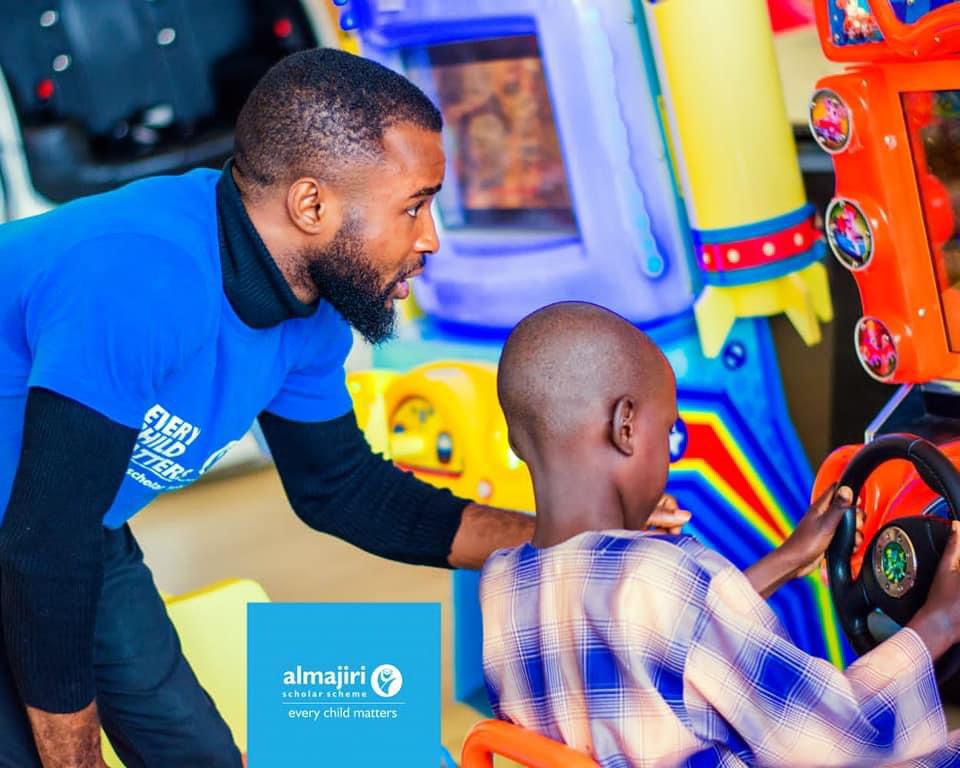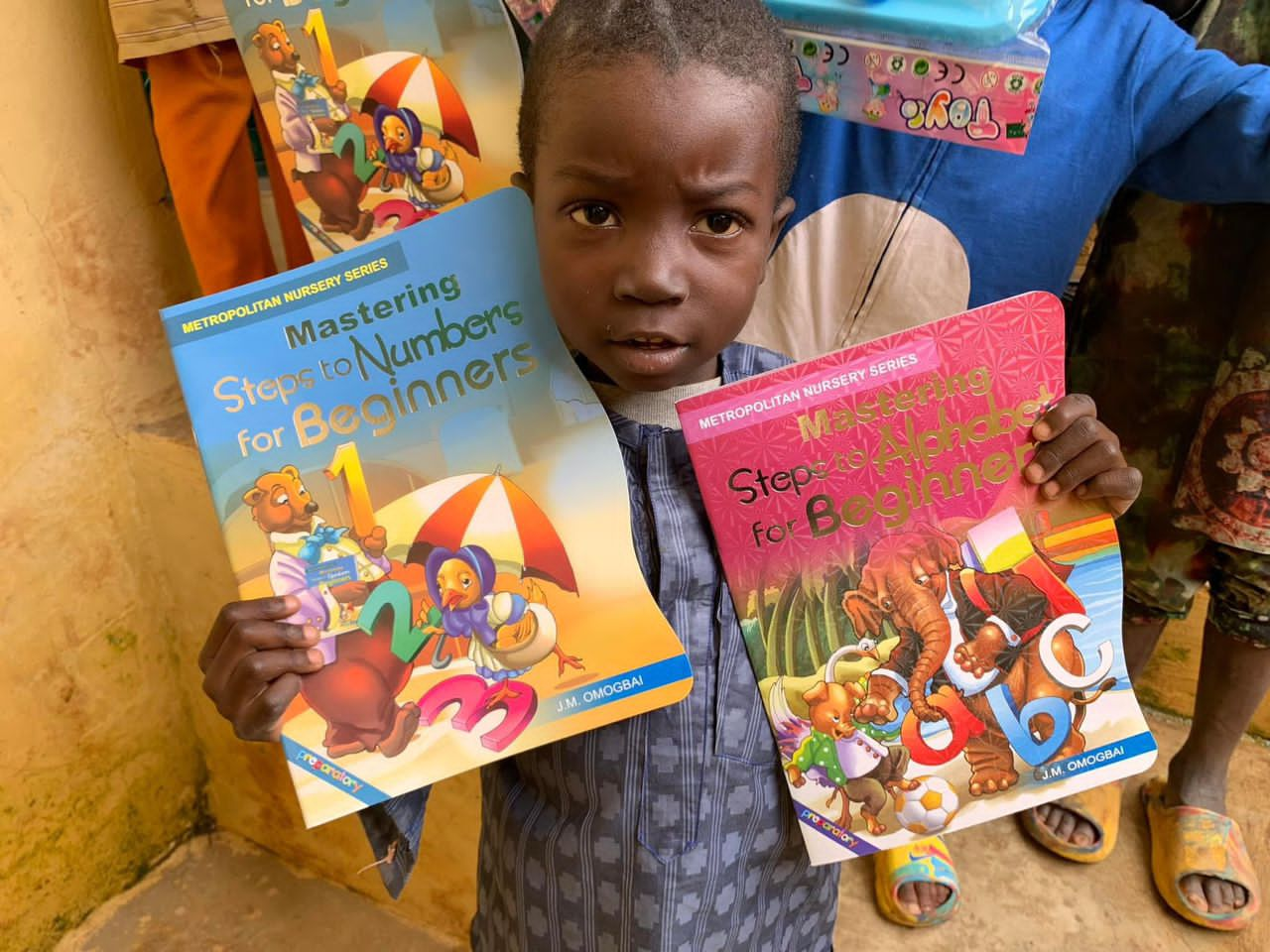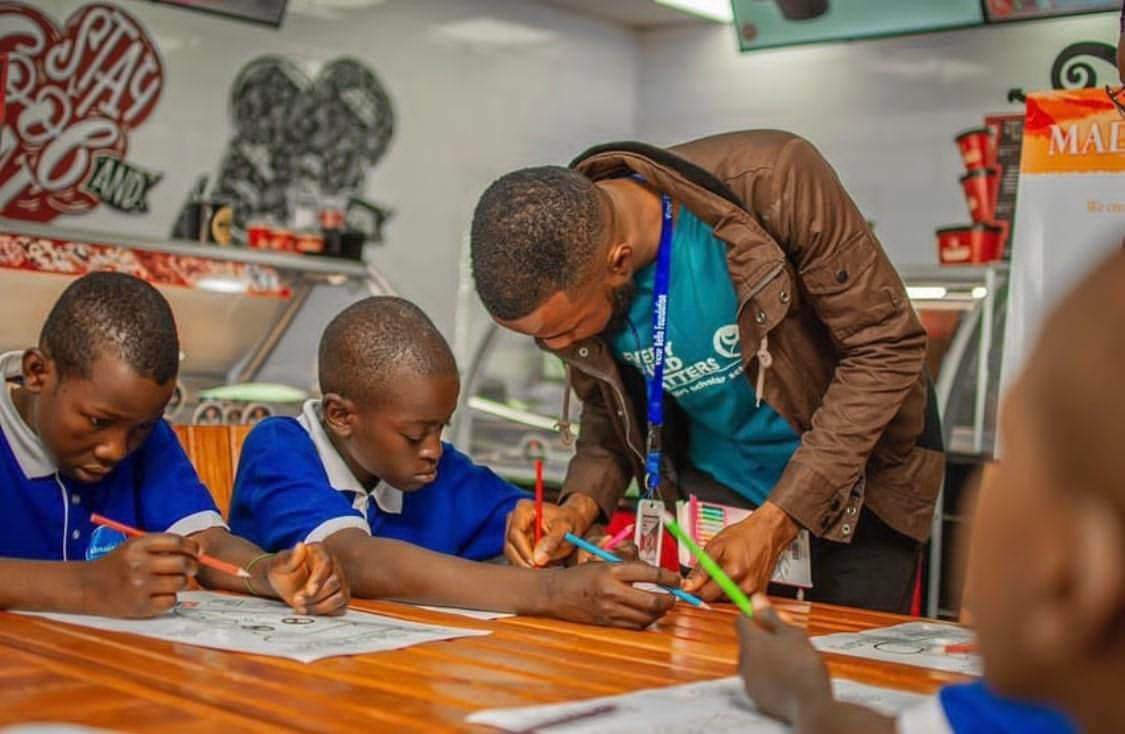In 2022, Victor Bello, a young Christian inspired by a long-held dream to equip Almajiri children with basic education, founded the Almajiri Scholar Scheme in Nigeria. The program is making a difference for 80 children, but not without challenges. This story was co-published with Joey Off Air.
JOS, PLATEAU STATE— As a teenager, Victor Bello encountered many sights as he walked the bustling streets of Kaduna, in northwest Nigeria, to school each weekday. But the sight of children—most of them younger than him—begging in the street haunted him the most. “I remember always wondering, ‘Why were they there (on the street) instead of in school like me?’”
One day, Bello approached his dad and asked questions about the street kids. “They are Almajiri,” his father answered, emphasising that the parents of the Almajiri prioritised Quranic knowledge over Western education.
Stemming from the pre-colonial era, the Almajiri system (derived from the Arabic word “Al-Muhajirun”, meaning “seeker of knowledge”) emerged in the old Kanem-Borno empire, which crept from Nigeria to Niger, Cameroon, Libya, and Chad under a Muslim king.
Inspired by Prophet Muhammad’s migration seeking knowledge, the system involves young boys leaving their homes to an Alarama’s (a teacher’s) home to learn for about six years. Starting with the basic Arabic alphabet, they progress to memorising the Quran.
Because many of them are not adequately cared for at their teacher’s homes, they end up on the street as beggars. Although the exact number remains unknown, UNICEF estimates that 81% of out-of-school children in Nigeria belong to the Almajiri system, typically between the ages of 4 and 10.
As a young Christian boy, Bello was a member of a Bible club at The Nature of Christ Bible Church in Kaduna State while attending school, so his father’s explanation of why the parents of Almajiri preferred to restrict their kids to just Arabic knowledge made little sense to him. “Why can’t they have both [referring to religious and Western education]?” he wondered.
Soon, his thoughts deepened into an urge to address these children’s lack of basic education. The desire grew with him and became stronger when, at age 16, he stumbled upon a quote by the late Myles Munroe, a Christian evangelist, that reads: ‘The problem that you are most worried about means that God has called you to solve it.’
“In my heart, I knew this was bigger than me,” Bello said. “It wasn’t about ending the Almajiri system, but about finding ways to make it better, to offer something meaningful to these children.”
Ramadan meals and resistance
In 2017, Bello was a fresh undergraduate at the University of Jos in Plateau State and lived in Filin Sukuwa, a predominantly Muslim community near campus. This brought him face-to-face with the Almajiri children again.
“This time, I knew I couldn’t stay silent,” said Bello, who was 20 at the time. He approached community leaders with an idea to provide Almajiri children with literacy skills. However, his efforts were met with resistance from the conservative elders, who said Bello’s “being Christian created a barrier of trust” or a veiled attempt to convert the children.
At the time, Bello was the assistant youth leader at Supernatural Love Ministries, a pentecostal church in Jos, where he led young Christians to carry out spiritual and humanitarian activities.
Undeterred, Bello prayed for “divine guidance” and consulted with his mentors. In April 2020, when Ramadan coincided with the peak of the COVID-19 pandemic, the university shut down, but Bello stayed back. Inspired by Jesus’ words – “When I was hungry you gave me to eat,” he used his savings to prepare Iftar meals (evening meals for breaking fast during Ramadan) for about 15 Almajiri children.

Bello invited both community leaders and the Almajiri children to the meal and used the chance to share his idea with them. However, again, the teacher in charge of the children was uncomfortable with the idea, so Bello halted the plan.
During the 2021 Ramadan, Bello repeated what he did in 2020, preparing meals for Muslims. But this time, he went beyond his community to share his Iftar meals at the Jos Central Mosque, where he met the leader of Almajiri education in the state. Luckily, the leader was impressed by Bello’s ideas for education for Almajiri children.
The leader introduced him to Mallam Habali, the teacher in charge of a group of Almajiri children in Angwan Rogo, an area most Christians in Jos avoid owing to polarisation. Jos has continued to face ethnic and religious tensions since a 2001 religious crisis that resulted in thousands of deaths and some areas marked as security risk.
With the support of Habali, Bello teamed up with eight friends in Jos—five Christians and three Muslims—to launch the “Almajiri Scholar Scheme” in 2022 to build Almajiri children’s mastery of the alphabet, numbers and comprehension.
The Scheme
The scheme started with 20 kids in a school owned by a community leader. Respecting their routines and taking advantage of Thursdays, their free day, Bello and his volunteer friends organised class schedules aligned with Quranic studies and Friday prayers (Jumat).
“The Almajiri Scholar Scheme isn’t about converting anyone. It’s simply a Christian showing love to his neighbours, just like Jesus taught,” Bello said.
ASS also introduced vocational training in shoemaking and tailoring, recognising the importance of future self-sufficiency. Within eight months of the scheme’s launch, the number of enrolled children jumped to 60.
“I am sure they noticed something different about their friends,” Bello said, with a feeling of satisfaction.
Twenty-year-old Badamasi Aminu, a Muslim and volunteer, said he became a volunteer because “While learning religious values is important, the children need to be employable in society and basic education is necessary.”
“They are a blessing…”
Isah Mohammed, a bright-eyed seven-year-old, proudly recites the alphabet, counts 1,2,3…, and identifies his body parts in English. When he came to Jos from Dutse, Jigawa State, for Almajiri, Western education was an unfamiliar territory until he joined ASS.

“They’re a blessing,” Mohammed, who now dreams of becoming a lawyer, confessed. “Now, I’m learning new things alongside the Quran.”
Occasionally, the ‘scholars’ take field trips to local attractions and learning centres across Plateau State. “These excursions aim to expand their knowledge and appreciation for their surroundings,” Bello explained.
Many hurdles
One persistent challenge the scheme faces is students leaving it to return to their homes during farming seasons to assist their families.
“The first time it happened, the class size dropped from 60 to 40. It was heartbreaking,” Samson Bello, another volunteer, lamented. “When they return, we’ve progressed in the curriculum; this requires us to restart for those absent.”
Also, due to the polarised nature of the Jos, and the school’s location, the scheme experiences a shortage of volunteers. “Many potential volunteers [Christians within my circle] are hesitant to come to the venue of the classes due to its location [a Muslim-dominated community],” Bello said.
He recently hired a full-time local teacher to continue the program, but he laments that “there’s only little we can achieve with one teacher”. The student entrepreneur pays the teacher’s salary from his pocket, which has also been challenging as he hopes to get financial support.
Failed national efforts
Successive Nigerian governments have tried to solve the Almajiri problem with little success. In 2010, former President Goodluck Jonathan launched a project that built 157 specialised schools across northern Nigeria where the Almajiri system operates. The schools were designed to bridge the gap by combining Islamic teachings with Western education for future employment.
Unfortunately, the schools, initially designed to accommodate around 300 students each, are currently dilapidated owing to continued negligence by state governments.
In 2023, Nigeria passed the National Commission for Almajiri and Out-of-School Children Education Bill. This law establishes a commission dedicated to tackling both issues simultaneously. But given past failures, it is too early to conclude whether the Act will succeed or fail like previous efforts.
This story was supported by the Centre for Religion and Civic Culture at the University of Southern California, through its global project on engaged spirituality.
In 2022, Victor Bello founded the Almajiri Scholar Scheme in Nigeria to provide basic education to Almajiri children. Inspired by the sight of these children begging on the streets and a deep-rooted desire to make a difference, Bello's initiative now supports 80 children despite various challenges.
The Almajiri system, dating back to the pre-colonial era, emphasizes Quranic knowledge over Western education. Many Almajiri children, inadequately cared for, end up begging, with an estimated 81% of out-of-school children in Nigeria belonging to this system. Bello, a Christian, envisioned a program combining both religious and Western education for these children.
Bello faced resistance from community leaders and struggled with trust issues due to his Christian background. Undeterred, he provided Ramadan meals to Almajiri children during the COVID-19 pandemic, gradually gaining acceptance. In 2022, with support from local leaders, he launched the Almajiri Scholar Scheme, starting with 20 children and growing to 60 within eight months. The program includes literacy skills and vocational training in shoemaking and tailoring.
The scheme faces hurdles such as children leaving during farming seasons and volunteer shortages due to ethnic and religious tensions in Jos, where the scheme is based. Bello hired a local teacher but funding remains a challenge. Previous national efforts to integrate Almajiri education with Western education have largely failed, highlighting the ongoing struggle to address this issue in Nigeria.
This story was supported by the Centre for Religion and Civic Culture at the University of Southern California.






